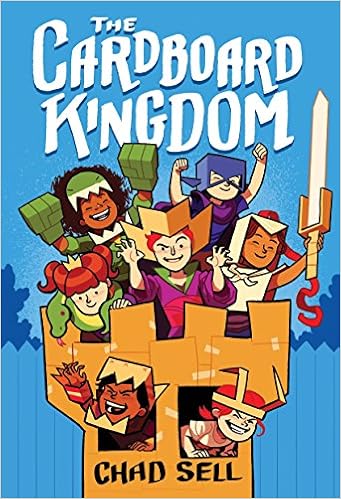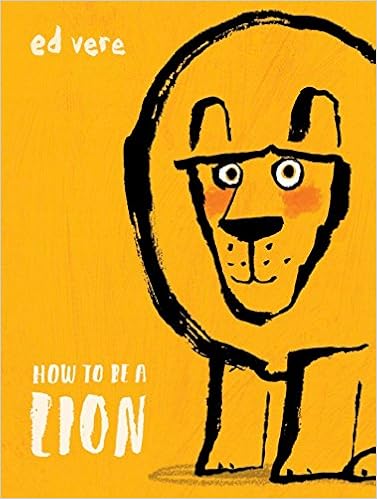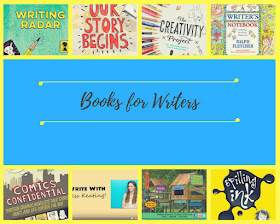I read a lot professionally and there are so many professional books I love--so many books that have become part of who I am as a teacher. So many that have helped me think about things in new ways. I love so many of the books I have read and am thankful to everyone who writes them.
There are a few books that have changed me, that have become part of my heart. These are books I go back to often--to reenvision the time I spend with children. This week, I read Troublemakers: Lessons in Freedom from Young Children in School by Carla Shalaby. This is one of the most powerful and important books I have read in a very long time. As I started the book, I knew that it was a book that would change me. Early in the book, I felt similar to the way I felt when I read Lessons from a Child by Lucy Calkins and Choice Words by Peter Johnston. I couldn't be the same teacher after reading these books. Once you see children through the lens of these educators, you can't not change the way you are in the classroom. Troublemakers is that kind of a book.
I don't remember where I first heard about this book. It may have been mentioned in a conference session or I may have seen it first on social media. I do know that I ordered it immediately once I heard about it. I knew this was a book I wanted to read after I read the first line about it on Amazon ("In this dazzling debut, Carla Shalaby, a former elementary school teacher, explores the everyday lives of four young 'troublemakers', challenging the ways we identify and understand so-called problem children")
I've always been interested in identity and agency in young children. This book is written as four separate case studies. Carla Shalaby helps us know (and love) 4 children deeply--as learners, yes--but also as people. Four very young children who are already labeled as "troublemakers" at school. And she chooses children who are in classrooms with strong teachers who are committed to each individual child in their care. She helps us know each child and she invites us to look at each child through a new lens--a lens that can help us learn from them--a lens that can help us see the structural issues in our classrooms and schools that make school a difficult place for these children. Through these children, she helps us to think about freedom, compliance and power. These four incredible children help us see our classrooms in new ways.
As with any teacher, I've had children who have not "fit in" to the structures of school. Students who cause trouble. Students who I feel that I have failed. For me, reading this book was an exercise of hope, of study and of reflection. It pushed me to think in ways I hadn't thought before and it helped me to realize new ways to think about the children in our schools. I learned different things from each of the four children in this book. Each child helped me reflect about some piece of my relationship with children that I hadn't explored. Carla Shalaby pushes a bit beyond the case studies during the last third of the book and I have to admit that this part of the book was a little painful to read--it required true and honest reflection. The reflection required in her conclusion meant I had to acknowledge things that were hard to admit, even to myself. I thought of children who I failed and what I could have done differently-what part I played in the "troublemaker" narrative. But with that reflection, the author offers us hope. Not only hope--she reminded me of the power that we, as teachers have to make change, to make things right for our children, to move beyond the mandates and the constraints and to be change makers.
I have underlined more in this book than I did not underline. Every sentence Carla Shalaby writes is powerful. And her writing is quite magical in itself. This is one of those books I am not letting out of my sight because I keep dipping back in after my first read-- to think a bit more deeply about one part or another. I ordered a few extra copies because I want everyone I know to read this book, yet I can't hand over my copy as I know I will continue to revisit it for a very long time.
I am not sure how else to describe this book except to say that it is a must read for every teacher or parent. I know this blog post does not do the book justice and I am hoping to think more about it with visuals on Instagram and Twitter over the next several weeks. I have so much more thinking to do around Shalaby's words. In the meantime, I recommend that you get your hands on this book as fast as you can and that you put it on the top of your stack. But don't read the book quickly--give yourself time with the book as it is life-changing.
I can't thank the author enough for writing this book. This book is one that has the power to change things-- to make a difference in our schools and in our world. It is a true gift to us and to our children.
*In case you want to read some more about the book:
A Page About the Book at The New Press
An Interview with Carla Shalaby
A Blog Post by Jessica at Crawling Out of the Classroom
Follow Carla Shalaby on Twitter



















